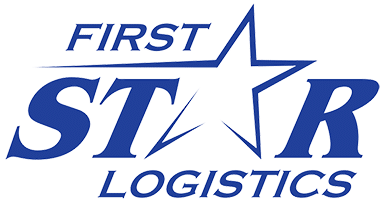The freight brokerage business involves a substantial amount of responsibility, and with that responsibility comes laws and regulations. To become a freight broker, you must be licensed by the Federal Motor Carrier Safety Administration (FMCSA). This is the same governing body that sets forth several standards that must be met for freight brokers to stay in business. In this guide, we explain the importance of adhering to freight broker laws and regulations and list some rules freight brokers must know.
Why is it important to stay compliant with freight broker laws and regulations?
Freight brokers must conduct business safely, ethically, and responsibly. Shippers, customers, and the supply chain rely on freight brokers to make honorable business decisions. If specific standards are not met, whole industries and large numbers of customers could suffer.
Staying compliant with laws and regulations is also crucial because it is a stipulation of licensure, meaning freight brokers can only hold a license if they comply with specific laws and regulations. The consequences of breaking a law range from a fine to the suspension or revocation of the license.
Freight Broker Laws and Regulations to Know
Keep Records
Law 49 CFR §371.3 states that freight brokers must keep a record of each transaction for three years. All parties involved in the transaction have the right to review the records. The records must include:
- Co-signer’s name and address.
- The originating motor carrier’s name, address, and registration or USDOT number.
- Bill of lading or freight bill number.
- The compensation amount received by the broker for their service and the name of the person who paid.
- Description of any non-brokerage services, the amount of compensation paid, and the name of the person who paid.
- The amount of any freight charges the broker collects.
- The date of payment to the motor carrier handling the shipment.
Do Not Misrepresent
Law 49 CFR §371.7 states that freight brokers must conduct business under the business name written on the certificate of authority. In all marketing materials, web presences, and customer communications, they must clearly state their brokering type. A freight broker’s website must include:
- Name as displayed on the broker registration.
- Motor carrier (MC) docket number.
- A statement that you are a broker.
Do Not Receive Compensation or Give Rebates
Law 49 CFR § 371.9 states that freight brokers are not allowed to charge or receive compensation from a motor carrier if there is a conflict of interest. Conflict of interest may fall into one of four categories:
- The broker owns the shipment.
- The broker owns the shipper.
- The shipper owns the broker.
- Both parties have the same owner.
Additionally, brokers cannot give anything valuable to the shipper, co-signer, or consignee. The only exception is that freight brokers can give inexpensive advertising materials to other parties for promotional purposes.
Keep Business Accounts Separate
Law 49 CFR §371.13 states that freight brokers must keep all financial accounts and records separate. This only applies to freight brokers who have additional businesses. If there are shared expenses between businesses, the expenses should be allocated equitably, and the freight broker must be able to explain which expenses belong to the brokerage and why.
Disclose Cancellation Policies and Keep Records
Law 49 CFR §371.117 states that freight brokers must prominently display cancellation, refund, and deposit policies on their business website. In terms of record keeping, freight brokers must keep records of cancellation requests and responses for three years. They must also keep records of shipper deposit refunds that state how the refund was processed and show confirmation from a financial institution. Adhering to these laws and regulations will help freight brokers avoid disputes with carriers or shippers.
Partner with First Star Logistics
One of the best ways for shippers and carriers to ensure they are working with trustworthy freight brokers is to partner with a trusted logistics company. The best way for freight brokers to have the resources and support they need to adhere to laws and regulations is to work for a trusted logistics company.
First Star Logistics is a unique asset-based global brokerage company with over 60 years of experience. We support our carriers with the technology, management, resources, and support they need to ensure safe, on-time delivery at the best possible rates. We empower our freight brokers to succeed by providing complete back-end support across multiple departments. We ensure our customers have the best possible care.
To start your journey with First Star Logistics, contact us today!



